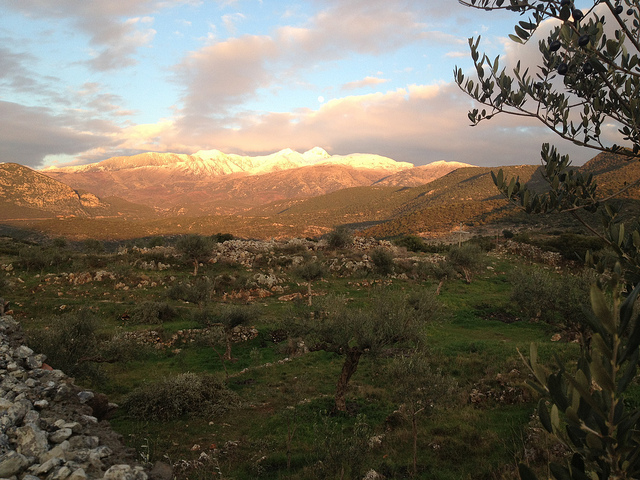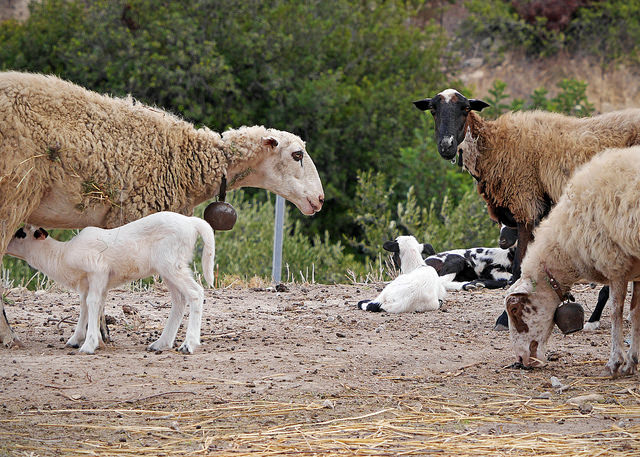In light of the recent news out of Greece, I decided to revisit an old post of mine that is 2 years old almost to the month (fancy this blog existing so long) and do some more research on how Greeks have fared that choose farming as a last resort in an economic crisis with few equals.

The two minute gist: In 2012, when Greek unemployment rates hit 25%, many Greeks out of options turned to farming their ancestral land, arguing that it was relatively immune to crisis:
“I always wondered how it would be to be a farmer,” one newcomer to the fields said. “Whatever happens with the economic crisis, the sky will still be blue.”
These sort of mindsets let enrollment in farm schools skyrocket as citizens looked for a second economic base and sort sort of autonomy in a rocky world full of changes. However, the farming school director already worried about the future for these young greenhorns:
“I’m expecting about 1% of them to make it. They need to have some income, and this is a problem at the moment. They start without capital – these are desperate people. Their wives or they themselves are used to a different way of life – they are used to going to cafes, socialising in the afternoons. Being a farmer, you have to work 365 days in a year. Overnight, you have to change your life completely.”
Between 2008 and 2012, reports stated that the Greek agricultural sector had added 35’000 jobs, one of the few sectors to grow in the midst of a general recession. However, not all reports saw this development as sign of a sector untouched by crisis. Some argued that this addition of overqualified, but inexperienced workers was on the contrary a signal of how dire the economy really was doing.

Yet, maybe a “brain drain” back to the islands and hinterlands of Greece isn’t such a bad thing. NPR reported last year that particularly specialty food start-ups are paving their way into the international food scene. For decades, Greece has been heavily subsidized by EU farm payments and farmers became complacent and reactionary in response:
“Part of the [subsidy] money was supposed to go to modernization of techniques, new equipment, new ways of cultivating the land,” Makryniotis says. “Instead of making good use of this money, most of the money was wasted either on personal needs or consumption of farmers themselves.” Many Greek farmers planted just a few crops that were subsidized. “If olive oil was subsidized,” he says, “we just planted olive trees everywhere. And then we cut them out.”
As economists, PhDs and logistics specialists are taking up food production, they are taking up new marketing strategies that wouldn’t have crossed the mind of previous generations:
Lymperopoulos says Radiki is expanding its work outside of Greece: He now supplies produce from the Peloponnese to restaurants in Paris and London, and is also partnering with a Greek gourmet food company to sell sea greens to the U.S. “In Greece, we have the best products, but we don’t have a strategy,” he says. So like many entrepreneurs in post-austerity Greece, he’s decided to write his own.
In fact, think tanks are advising Greeks to focus job growth on a few key sectors where the country has a competitive advantage, agriculture being one of them. Yet, the latest figures from the Hellenic Statistical Authority dampen the hopes of a renaissance of the sector: from 2011 to 2013, the work force in the agricultural sector shrank again by more than 20’000 heads. In 2013, unemployment was at 27.3%. So maybe the euphoria of the 2012 wave of converts has come to an end?

If we know anything, it’s that starting up a profitable agricultural business, particularly as a newcomer with little practical experience or family history, is extremely hard even under non-crisis circumstances (take the US for example). Doing this without good access to credit, a customer base that is also cutting down on their expenditures and with existing competition of professional farmers that have seen incomes drop by 14% is even harder. In fact, the percentage of people reporting having not enough money to buy sufficient food rose from 9% pre-crisis to 18% according to the most recent data. So farming could on the one hand help to at least get some food on the table, but as a business model it seems shaky.
So while specialty producers (such as these saffron farmers) may continue to prosper (and make nice news headlines), and farming is a way toward food independence for others, I am skeptical whether the sector is the “secret weapon” and “light at the end of the tunnel” that it’s hailed to be. For that, you need strategies, opportunities, and stability – none of which is on offer in Greece at the moment.